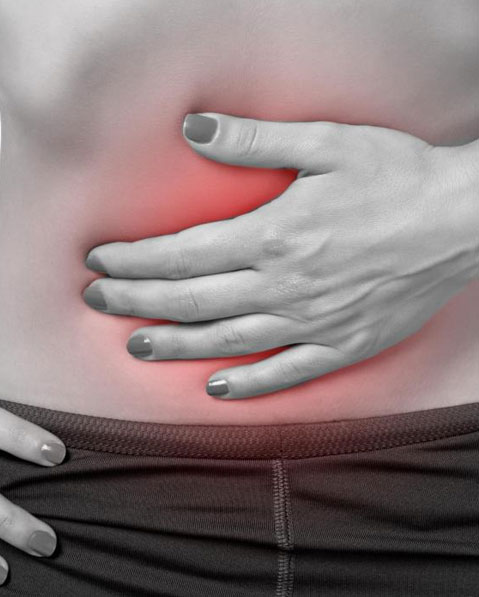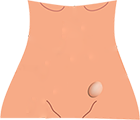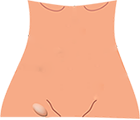I got my Inguinal hernia surgery on both sides by a laproscopic surgery by Dr Chirag Thakkar. And the whole experience was very smooth, there was not much pain, i started walking and eating few hours after surgery. When back home to Siddhpur next day and start light office work after 2-3 days. So in case you need this surgery, no to worry too much. Laparoscopy has made it much smooth for patient, especially when you get a surgeon as skilled and caring as Dr Chirag. Modi Kartik
Siddhpur
I don’t want to tell much more things but I give A++ Ratings to Dr Chirag Thakkar as a Doctor and Person. Rajnikant Shah
Bhuj
We had very nice experience with Dr Chirag Thakkar. In true sense he is genius. I had Infection right now at stitches but I remain in touch with doctor for his support. I am from Rajasthan so I am doing my regular dressings in nearby hospital. Rajkumari Joshi
Rajasthan
Dr Chirag is the best doctor in Gujarat. We had to be shifted to CIMS hospital in a bad shape due to complication after a surgery. We are thankful to him we got such a great treatment. Kamala Ashok Devani
Anjar
Dr Chirag Thakkar is experienced, gentleman and the most important he is very caring. Thanks once again for taking care of my wife, she is enjoying her life again worry free. Ashaben Jagdishbhai Patil
Dr Chirag is very thorough and professional. His nature is very helpful and he helped us feel relaxed. Thank you very much for treating my mother. Our best wishes are always with you. Jayaben Jineshbhai Shah
Jamnagar
I am heartly thankfull to Dr chirag Thakkar, he is an excellent doctor. My recovery was really fast after surgery and now I don’t feel like I am operated .He explained me whole treatment, I am totally satisfied with Dr Chirag Thakkar and CIMS Hospital. They proved that they are CARE INSTITUTE OF MEDICAL SCIENCES. Vishal Sureshbhai Dodiya
Ahmedabad
We were searching for hernia specialist and got to know about Dr. chirag online. He is really professional, caring and supportive. We decided to get operated at his clinic and was a suuccessfull surgery. Hospital staff was also professional. Post-surgical recovery has been steady, with various follow ups. I recommend him for treatment of hernia. MAURYA MINAL
I came from rajasthan for my wife treatment of hernia at Dr. Chirag Thakkar clinic. My wife hernia surgery under Dr. Chirag Thakkar. Very experienced doctor surgeon for laparoscopoic hernia surgery. Thanks Dr. Chirag Thakkar Ramesh Soni
I was suffering from hiatus hernia problem for past 10 years. Finally I doing well after surgery done by Dr. Chirag Thakkar. I am satisfied with the treatment. Thanks Dr. Chirag Thakkar. Sonal Patel
I came from Rajasthan for my mother treament of hernia at dr chirag's clinic. His clinic is very clean, professional staff and my mother was operated for this problem and feelig better now. post-operation check ups have also been very good, and no complaints. Pooja bunkar
Very experienced surgeon for laparoscopic hernia surgery. His friendly behaviour with passion for sharing knowledge will make patient comfortable undergoing the surgery. Mukesh Variyani
- I searched lots of Ahmadabad surgeons for hernia & i was also referred by family member to Dr chirag for my problem. I am thankful to dr chirag for doing this surgery and giving me the relier from the pains. Great experience with Dotor & his team. Prakash patel
- My father was suffering from GERD and HIATUS HERNIA since 1 year and no progress till He go through a Hiatus hernia surgery at this clinic.
After this surgery he is feeling now better than ever. Arpit Patel
My hernia surgery was done by Dr Chirag Thakkar by a laparoscopic method. All my three hernia, on both side of groin and my navel were treated together. My surgery and post surgery period was uneventful and smooth, all thanks to Dr Chirag and his team at ADROIT centre. dipak gohil
My father got Hernia surgery done by Laparoscopy. Out experience was very nice, everything was uneventful. Thanks to Dr Chirag Thakkar and his team. Diken Detroja
I got my surgery for GERD and hiatus hernia , three days back after getting pH with Impedance study. Everything went very smooth and I am going back home now. Dr Chirag Thakkar and his whole team is very much expert in this problem. Everything is systematic and doctor is very helpful and caring. paras patidar
I was suffering from Acid reflux and hiatus hernia. i met Dr Chirag Thakkar, he did pH study and suggested laproscopic surgery. Today 2 months have passed since my surgery and I am absolutely fine. My surgery was very smooth, much simpler than what I expected. Dr. Chirag Thakkar is best gastroologist. He is very kind human. I am totally satisfied with his. Pankaj Sindhav
My experience was great ...... doctor chirag is very experienced and understanding the problem .....i had a hiatus hernia around past 6 years and also asthmatic problems ....so i recently i have a surgery of leproscopy hiatus hernia surgery under doctor chirag thakkar its been around 5 days and now i feel so good and acid reflux problem is no more also asthama symtoms also reduces ty so much dr chirag... Akshay Chaturvedi
I was suffering from Acid reflux and hiatus hernia for past 3 years. Consulted many gastroenterologist and got endoscopy multiple times. But my problem was not solved. Then i met Dr Chirag Thakkar, he did pH study and suggested laproscopic surgery. Today 2 months have passed since my surgery and I am absolutely fine. Dont need any medications. My surgery was very smooth, much simpler than what I expected. Dr Chirag is the best Gastrosurgeon in all aspects. Vasubhai Maheshwari
I was diagnosed with right inguinal hernia and was suggested to be operated for the same. I was worried as no one would like to go under the knife. Dr Chirag Sir helped me overcame the fear of going through the operation. He answered each and every questions with a calm. He suggested cost effective package for the operation and methods to correct hernia. The operation was smooth and I was walking on the same day evening after the operation. Next day I was given discharge and I went home. It has been 51 days since my operation and i am happy to say that I've already forgot about the entire 'hernia situation' but i will never forget Dr Chirag sir's utmost care and kindness. He is the best GI surgeon. Ronak Trivedi
Experience was gud,treatment and guidence given by Dr. Chirag was very helpful.satified with the way he helped. I did surgery of hiatus hernia and it was well done n very successfully done by dr Chirag thakker.. Saurabh rabari






















